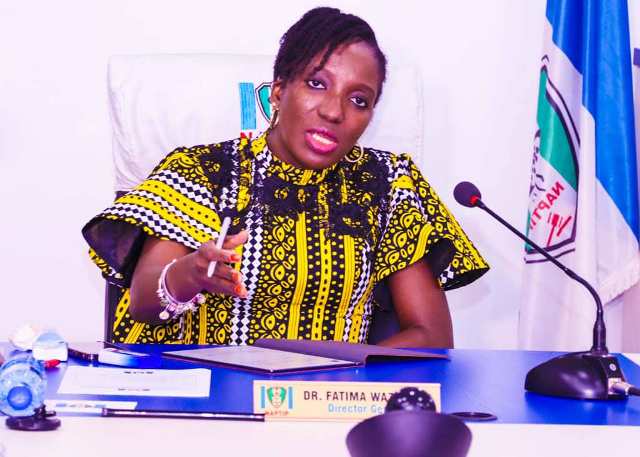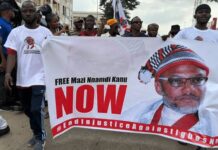The National Agency for the Prohibition of Trafficking in Persons (NAPTIP) has revealed that Lagos State is biggest transit, destination for both internal and external human trafficking in Nigeria.
The director general of the agency, Mrs Fatima Waziri-Azi, stated this yesterday during the handover of a five-room counter-trafficking in person office for the anti-human trafficking unit of the Lagos State Neighbourhood Safety Agency (LNSA) and the Lagos State Task Force on Human Trafficking.
Waziri-Azi listed Epe, Ikorodu, Agege, Apapa and Iganmu as top places in the state where most of the illicit act is carried out the most.
To tackle the problem of human trafficking in Nigeria, Premium Times quoted the director general as saying that it would be necessary for agency to strengthen its partnership with Lagos.
“We secured the conviction of 68 persons for human trafficking in 2023. But our shelter in Lagos received and rescued the highest number of victims for 2023.
“There is also an increasing number of Lagos indigenes being trafficked, which shows that there is a problem that should be tackled,” she said.
However, she maintained that human trafficking is a national crisis and all stakeholders must continue to scale awareness to prevent cases, as prevention is a key pillar in tackling the scourge.
Waziri-Azi added that awareness about human trafficking promotes early intervention to halt and deter its incidence.
Also speaking at the event, the state attorney general and commissioner for justice, Mr Femi Pedro, said the state was renewing its commitment to vigorously tackle human trafficking with the project.
While admitting that anyone could be victim of human trafficking and that there were networks taking advantage of vulnerable people, he warned that perpetrators would always be made to face the full wrath of the law.
The commissioner implored residents not to hesitate in reporting when they see cases or trace of human trafficking, because “government alone cannot do it.”
In his remarks, the general manager of LNSA, Mr Ifalade Oyekan, urged residents to support the agency and the state in tackling human trafficking by providing information, as they cannot do it alone.
Oyekan said that when the donors and the project partners return in few months’ time to assess their activities, they would be glad to provide more support for the agency.
Also speaking, the deputy country representative of the United Nations Office on Drugs and Crime (UNODC), Mr Danilo Campisi, while providing a project overview, said that the initiative of the TIP office was conceptualised under two projects, namely, “Improved response to Trafficking in Persons in Nigeria (INL)” and “Strengthening Nigeria’s Criminal Justice Response to Trafficking in Persons and Smuggling of Migrants (PROMIS).”
According to him, in 2022, UNODC commissioned a gap analysis and needs assessment to document the status of established state task forces in Nigeria.
“The findings from these exercises showed that aside from the Edo State Task Force, all the other state task forces need substantial support to properly take off and stand. The need for training and structural sustainability as well as cooperation efforts within states was also emphasised.
“Till date, UNODC has supported different levels of intervention for the STFs, which includes capacity building, provision of office equipment for STFs with existing offices, created a coordination meeting amongst STFs in Nigeria through the boot camps held annually in Abuja, created an international coordination meeting between NGOs in Europe with NGOs, STFs and government partners in Nigeria to support and protect trafficked victims and vulnerable migrants, held in Siracusa Italy, and the creation of this TIP office in the premises of the Lagos State Neighborhood Safety Agency (LNSA) Lagos state,” he said.
The building and furnishing of the offices were funded by the United States government and the Kingdom of the Netherlands, but implemented by UNODC in collaboration with NAPTIP.
Campisi expressed optimism that the offices handed over to the LNSA will enhance the coordination of the response between NAPTIP, the state task force and the LNSA in the identification, prevention and reporting of human trafficking cases in Lagos State.
For her part, Waziri-Azi said that the execution of the project became important because, though Lagos may not be the biggest source of human trafficking, NAPTIP data had established it is the biggest transit and destination for whether internal or external trafficking.

























































